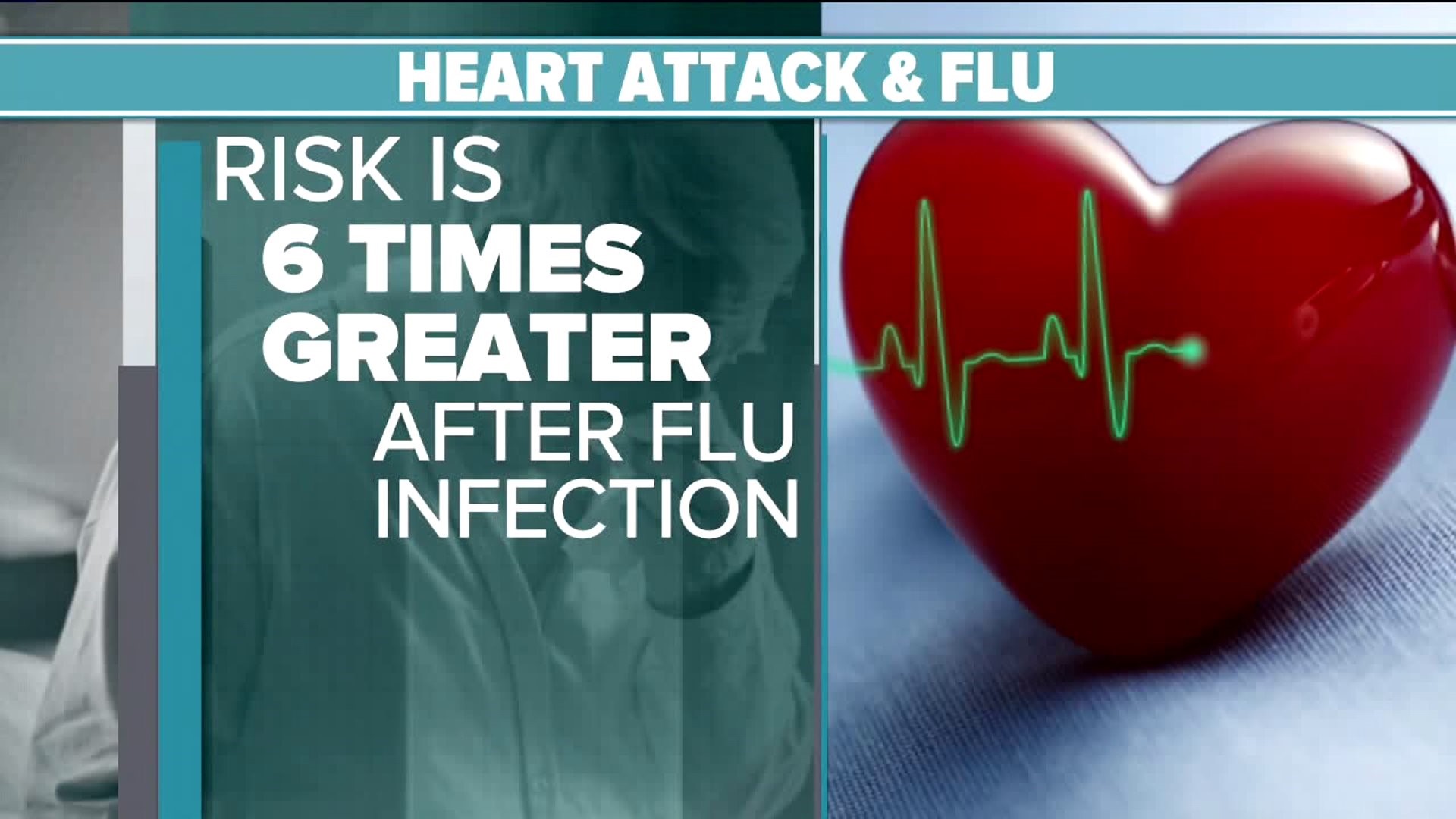PLAINS TOWNSHIP -- The number of people affected this flu season is higher than health professionals have seen in the past.
But a new study sheds light on who in particular needs to do everything they can to prevent getting the flu.
We reported just a few weeks ago, from Geisinger's laboratory at the medical center near Danville, how much flu testing was going on.
Dr. Donna Wolk says back in December a small number of the tests taken here came back positive for flu, around five percent.
Now that number is 64 percent, which she calls unprecedented, having never seen that number exceed 60 percent in her career.
And that is something Dr. Martin Matsumura is watching when it comes to his cardiac patients.
"There's a very high likelihood that their cardiac issues start acting up, they may have issues related to their underlying cardiac diagnoses when you layer flu on top of it," said Dr. Matsumura.
Dr. Matsumura is a cardiologist and the chief of cardiology at Geisinger Wyoming Valley Medical Center. he spoke with us about a recent article in the New England Journal of Medicine about the link between flu and heart attacks. Specifically, the study says you're six times more likely to have a heart attack for about a week after being diagnosed with the flu.
"Clearly, we're learning more and more than there's a link of inflammation of any kind and the worsening of heart disease. Obviously, acute flu is a very high inflammation time."
That inflammation, coupled with the stress the fighting flu puts on the body, means people with already diagnosed heart disease, or those who have risk factors, need to carefully watch their symptoms.
Flu makes everyone feel awful, says Dr. Matsumura, but watch for specific symptoms.
"Things like chest pain, shortness of breath, swelling of legs, inability to lie flat, that should be the trigger to contact us and let us know something may be up with their heart," Dr. Matsumura added.
Dr. Matsumura echoed what we have heard from other experts: it is not too late to get a flu shot, and if you have a risk or a history of heart disease, it may be that much more important.

